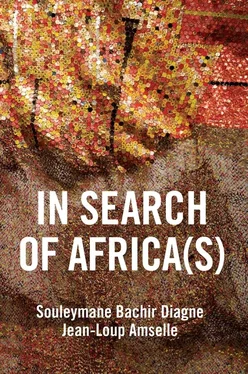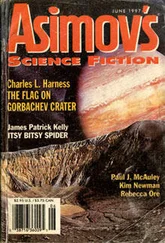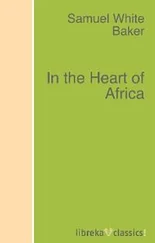We seem to be straying from Diagne’s ideas, but in actual fact, as we will see later, there is a certain overlap between the Indianocentric ideas of Pachamama and buen vivir , on the one hand, and the Afrocentric positions on human rights set foward by Diagne as they appear in ‘the Charter of the Mandé’.
And while Diagne admittedly does not go so far as to endorse the extreme positions of his Latin American colleagues, his hypothesis of the universalism of translation between different cultures nevertheless presupposes a hyper-relativism that is found in both fields.
The positions of Kwame Anthony Appiah, Kwasi Wiredu and Souleymane Bachir Diagne on the relations between the universal and the particular may be different, but all share a conception which, despite being generous with regard to the possibility of a communication and thus a translation between African and Western cultures, ultimately rests on the initial postulate of the existence of discrete cultures; even when they are not considered ‘intact’ (as in Quine, for example), and unaffected by history, these cultures are nevertheless closed entities existing in some eternal way.
Against this position, or rather these positions, I consider that it is appropriate to postulate the primacy of the whole over the parts: that is, the primacy of ‘chains of societies’, of ‘originary syncretism’, of ‘branchings’ and of cultural derivations. In my opinion, each culture is made of bits and pieces; it is a composite, so that there are no purely local identities. In my various works such as Au coeur de l’ethnie ( At the heart of ethnicity ), 32 Mestizo Logics 33and Branchements ( Connections ), 34I have tried to show that, right from the start, the processes of identification involved, in whatever historical period, signifiers much more extensive than those of the local communities, and that these signifiers were reappropriated by social actors in the form of particularistic utterances.
Indeed, the palette of the world’s cultures, as we know it today, or rather as it appears on the ethnic maps of Africa in particular, does not reflect a definite state of affairs, but rather a socio-historical construction, the projection of a knowledge/power onto what is actually a continuous network of cultures and societies. 35As I have tried to show, the way different ethnic groups of West Africa have been recorded by colonial knowledge/power for the purposes of intellectual and political management resulted in the rending of the continuous fabric which had united these societies in the precolonial era. 36Cultural singularity is thus the product, in a colonial context that postcolonial authors should certainly not ignore, of the (generally speaking arbitrary) delimitation of ethnic groups and cultures – a delimitation that results from a process of de-historicization, de-Islamization and de-politicization, in short of an ethnic cleansing effectuated in the intellectual and political field. This process prefigures the numerous cases of ‘ethnic cleansing’ and genocides that have occurred or are occurring now.
What some authors propose under the humanist label of the universalism of translation is actually based on sewing back together entities previously torn apart by colonial knowledge/power. Viewing the ‘saraband’ of cultures as a timeless entity is thus tantamount to forgetting the historical process through which the multiple ethnic groups and cultures of the world have come to be what they are. Claiming that they can be grasped sub specie aeternitatis amounts to setting them up as so many essences and turning them into the prey of processes of ethnic cleansing that in other contexts are deplored.
Everyone – or at least all those who are willing to accept the fact – knows that the categories of Hutu and Tutsi do not refer to immemorial ethnic groups, but that they are the product of the imposition of these categories by Belgian missionaries in Rwanda. These ethnic categories were themselves inspired by a reading of the works of François Guizot and Augustin Thierry dealing with the interracial war that, in the history of France, set the Franks against the Gauls! 37Before colonization, in Rwanda there were just Tutsi and Hutu kingdoms, and there was therefore no ethnic opposition, since they all spoke, and still speak, the same language, Kinyarwanda. Only with colonization and the identity cards on which one’s ethnic identity appeared did these categories emerge; the genocide of 1994 was thus to some extent a belated effect of the imposition of this colonial knowledge.
Yet we need to go beyond the pure vision of the ‘invention of tradition’. We really need to ask why these categories imported and imposed by outside agents have ‘set’, in the way that concrete sets. One answer would lie in the strong similarities that existed between the political models in force in the France of the Ancien Régime and in precolonial Africa. In fact, the predominant theories of power in these two areas drew a contrast in each case between those who held political power from the outside and the indigenous masters of ritual and the soil, which corresponds exactly to the model of the ‘war of the two races’ (Franks versus Gallo-Romans or Normans versus Anglo-Saxons) unearthed by Michel Foucault in Society Must be Defended . 38
This is the new ‘matrix of universalism’, with its postulate of principles common to many cultures, that I would like to propose, based not on some speculative reflection, but on the study of concrete situations tackled both by empirical field study and by a close analysis of the texts that discuss it. There are two main ways of doing anthropology: one can either start from differences and end up with similarities, or start from similarities and consider differences as a ‘remainder’. It will be understood that it is this last way of doing anthropology that I prefer.
This counter-intuitive point of view can also be supported by the existence of many practices that straddle Africa and Europe, such as the use of clairvoyance by certain heads of state – Valéry Giscard d’Estaing and François Mitterrand, for example – or even the religion of consumption which is reflected in an exponential growth in the amount of waste and which can be compared, mutatis mutandis , to the sacrifices made to fetishes in Africa. It is probably no coincidence that Marx characterizes capitalism as the reign of ‘commodity fetishism’, resorting to a concept based on the observations made by the Dutch merchant Willem Bosman on the coasts of Africa and later by Charles de Brosses. An equivalence is thus drawn between the way Africans worship certain objects called fetishes and the consumer goods that are worshipped in consumer societies. Both cases involve ‘partial objects’ that manifest the nature of ‘religion’ in force in both African ‘precapitalist’ societies and Western ‘developed’ societies. 39On this point, I share the position of some Latin American liberation theologians such as Hugo Assmann and Franz Hinkelammert. 40
The critique of overarching universalism, as developed by Merleau-Ponty and taken up by Diagne, cannot provide a path for the legitimate struggle of the old colonized peoples against the old colonial powers to follow, or for the struggle of African migrants and minorities fighting the discrimination imposed on them by the powers and governments of Western countries. Indeed, in my view this posture conceals two major pitfalls: it replaces class with race, religion and identity and thereby minimizes internal class conflicts in African countries (and in the countries of the South in general) and in the countries of the North. This is what the political and religious leaders of certain African countries do when they use female genital mutilation or the struggle against homosexuality (as they once used AIDS) to create an imagined conflict between practices described as foreign and as such to be condemned, and African ‘traditions’ that have remained fundamentally healthy.
Читать дальше












